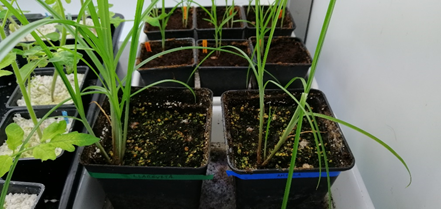Cyperus esculentus
Interest
Tigernut has agronomic interest because of its tubers that can be eaten fresh or used to prepare horchata, a sweet and refreshing white drink, typical of the Horta de València. In addition, the tubers have a high diet fiber content, which makes them ideal for the production of cattle feed. In the area of L'Horta de València, where it has been traditionally domesticated and cultivated, two clones have been identified and registered with morphological characteristics of the different tubers: round shaped 'ametla' and long shaped 'Llargueta'. In addition, this species, particularly 'esculentus' variety, is naturally distributed in cultivated areas as invasive weed with no agronomic value.
Distribution and origin of the sample
Within this plant species, the 'esculentus' variety, is practically cosmopolitan and has importance as an invasive weed. However, the 'sativus' variety, which is suitable for human consumption as fresh product or horchata form, it is grown in countries such as Spain, Algiers, Iran, Iraq, Egypt, Senegal, Ivory Coast, Nigeria, Niger, Burkina Faso. Faso, Ghana, Mali, Cameroon, Togo, USA, Russia, Turkey, China, France and the Netherlands. The samples that will be sequenced in this project are from Valencian Region, especifically from l'Horta de València. These lines are clones that have traditionally been cultivated and maintained in the town of Alboraia and are expected to diverge genetically from foreign imported material.
Principal investigator
Hèctor Candela. Institut de Bioingenieria de la Universitat Miguel Hernández (UMH).
Vicent Arbona. Departament de Ciències Agràries i del Medi Natural de la Universitat Jaume I (UJI).
Funding
Funding has been requested. So far, we are proceeding with our own fundings.
Links
https://www.umh.es/contenido/Estudiantes/:persona_108871/datos_es.html
http://www.ecofisiologia.uji.es/

Photography
Vicent Arbona.
